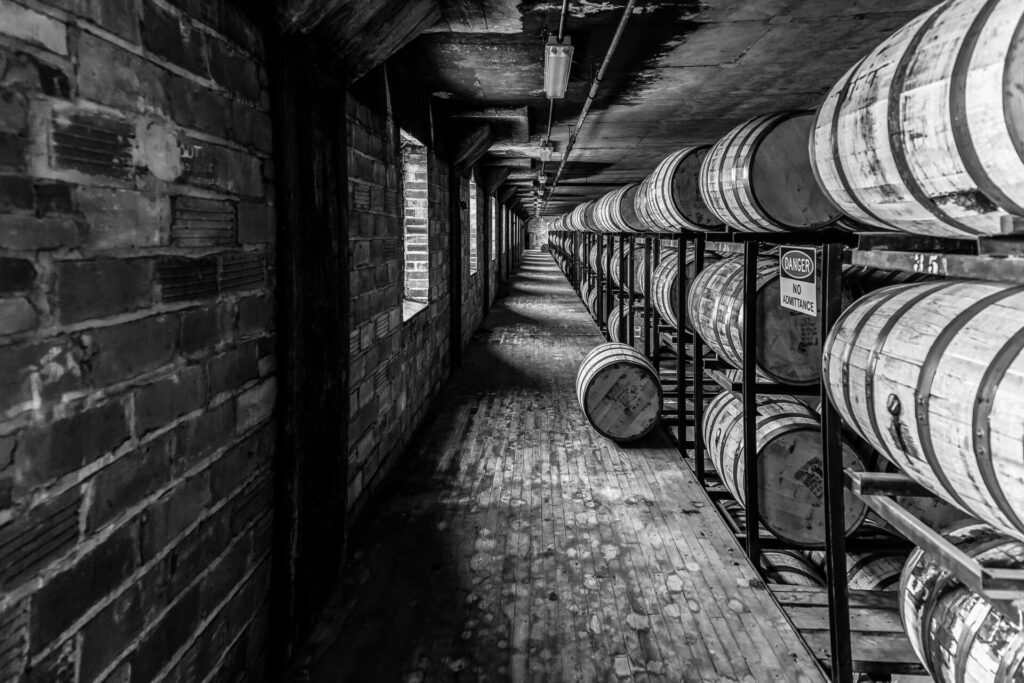The Lost Generation of Ernest Hemingway and F. Scott Fitzgerald

The Lost Generation
Born between the years 1883-1900, the Lost Generation came into adulthood during World War I and the subsequent spread of the 1918 Influenza pandemic. As the Lost Gen men were being drafted into war as soldiers, World War I built a reputation. Then called The Great War and the War to End All Wars, World War I unleashed chaos into the world. This clash of empires ended many monarchies and broke the work free from many of its colonial ties.
Members of the Lost Generation who survived WWI shared a disillusionment felt by their entire cohort. They were the generation before the Greatest Generation, which spanned from 1901 to 1927. The Greatest Generation would fall to the same fate as they were drafted into the second world war as young adults. The war effort during WWI consumed the resources and priorities of the West and a young man growing up in the Lost Gen was expected to give their life for their country and family members.
The elders of the Lost Generation, the Missionary Generation, were born between 1860 and 1882 and got their name from the grand number of charismatic preachers that emerged in the United States. The Missionary Generation were known as the “home-and-hearth children of the post-Civil War” in the US. They’re often associated with rigid idealism with strong opinions of how society should evolve which culminated in their middle ages as leaders from their generation clashed in World War I. This generation also included the idealistic non-violence pacifist movement of Mahatma Gandhi, which inspired the Civil Rights Movement in the US and Europe with the likes of Dr. Martin Luther King.
Ernest Hemingway, F. Scott Fitzgerald, and their mentor Gertrude Stein were American writers credited with defining the characteristics of the Lost Generation.
Key Takeaways: The Lost Generation
- Lost Generation entered adulthood at the start of World War I
Greatest Generation followed them and entered adulthood during World War II - The Lost G suffered the horrors of World War I and rebelled against their elders of the Missionary Generation
- Ernest Hemingway, F. Scott Fitzgerald, and their mentor Gertrude Stein are credited with defining the Lost Generation through their books.
Why do they call it the Lost Generation?
The term lost generation first entered the public consciousness when author Gertrude Stein expressed her judgment of the younger Lost Generation:
“All of you young people who served in the war. You are a lost generation… You have no respect for anything. You drink yourselves to death.”
Writer Gertrude Stein shared this with her protege Ernest Hemingway as reflected in Hemingway’s book The Moveable Feast and as the epitaph in his bestseller The Sun Also Rises.
‘The Lost Generation’ accurately describes the social disembodiment felt by members after witnessing the carnage of World War I. The loss of trust with their elders and the Missionary Generation traditional ideals was expressed through rebellion, hedonism, leaving their homelands to become ex-patriots and to wonder the world in a lost way. The cynicism of the Lost Generation laid the foundation for the roaring 20’s that saw a rise in jazz and the modern writing movement.
The “Lost Generation” of World War I
The Lost Generation’s young adulthood was eclipsed by the doom of the First World War. This younger generation was expected by their elders to serve the war effort, giving their lives if necessary. Lost Generation refers to the betrayal that young people felt when their friends died in battle or survivors of trench warfare came back to civilian life with battle fatigue (post traumatic stress disorder).
Lost Generation: 1920s
The Lost Generation searched for a sense of identity post world war. The rise of Prohibition (1920-1933) made alcohol consumption and manufacturing illegal. The Missionary Generation wished to impose its ideals of perfectionism onto the American Dream, leading to an oppressive relationship with their youth.
The 20’s roaring strong as The Great War (WWI) came to a close in 1918, the youth who survived the war wanted to party. But Prohibition made alcohol hard to come by. They snuck into a secret type of club called a speakeasy that was hidden in basements without signs like New York’s Club 21.. You had to have a password to enter into the hidden bars that serves bath tub gin and home brewed beer.
Many American writers escaped to France and Spain partly so they could binge drink at night which was hard to do during the US Prohibition.
The American Dream
Lost Generation women took up the factory and retail jobs left behind by soldiers drafted into WWI setting the stage for women’s equality in the decades to come. This trend continued with the Greatest Generation during World War II drafts. The Lost Generation were the first to challenge traditional gender roles with early feminist writers like Gertrude Stein of the Missionary Generation.
However, most members of the Lost Generation were disenchanted with the American Dream, especially as the restrictions of Prohibition began as they entered adulthood. Many artists were critical of the idealism of the American Dream when so much restriction and censorship during the world war did not fit in with the freedom of speech and the pursuit of happiness guaranteed by the US Constitution and the Bill of Rights.
Lost Generation Characteristics
- They were the original Gender Benders that challenged traditional gender roles.
- They lived by a high risk carpe diem (seize the day) mentality which had resurfaced as YOLO (you only live once)
- The Lost G sought drunken decadence while backpacking through Europe, wiring home for money or asking for their publishers for their next advance to go party.
- The Lost Generation were the first digital nomads who worked remotely using the telegraph. Their New York publishers messaged them about story assignments while the lost g authors pecked at typewriters with hangovers in Paris.
Lost Generation Writers
The American Writers Ernest Hemingway, F. Scott Fitzgerald, and their mentor Gertrude Stein are largely credited for defining the Lost Generation by depicting life during the roaring twenties.
Ernest Hemingway Books
Hemingway’s The Sun Also Rises was a smash hit capturing the derelict expat life of many American writers who were drifting through Europe. The novel talks about drunken nights and sexual exploits outside of premarital sex as American writers travel through Spain to watch bullfighting. The mentality of the Lost Generation can be summed up with a quote from Hemingway’s The Sun Also Rises, “Nobody ever lives their life all the way up except bull-fighters.”
Other Hemingway books that defined the Lost Generation include A Farewell to Arms about Hemingway’s survival from a bomb in Italy during WWI and For Whom the Bell Tolls which talks about his Spanish Civil War experiences that ignited World War II.
The Great Gatsby
It was the Great Gatsby book by F. Scott Fitzgerald that became the most famous 1920’s novel which captured the Lost Generation and their version of the American dream. It focuses on the mysterious Gatsby who throws legendary parties in the Hamptons of Long Island and goes drinking in NYC with his friends. The Great Gatsby movie starring Leonardo DiCaprio adapted the novel to the screen, reintroducing the classic about the Lost Generation to Gen X, Millennials, and Gen Z.
Gertrude Stein
Gertrude Stein was an American feminist writer of the Missionary Generation who mentored Lost Generation writers such as Ernest Hemingway and F. Scott Fitzgerald. Stein’s books Three Lives depicts a working class woman finding her identity before the start of World War I. She lived the majority of her life as an expat in Paris with her life partner Alice B. Toklas.
Gen Z and the Lost Generation
Every generation is unique, however as history repeats there are times when generations separated by a century have traits and experiences in common. The Lost Generation was disenchanted with the society that raised them and looked towards travel and creative expressions to cope with their disillusionment.
Top 5 Things that Gen Z and the Lost Generation have in Common
- Lost Generation writer Hemingway was 19 years old when the 1918 Flu Pandemic killed millions around the world. Gen Z came into adulthood during the COVID-19 pandemic which was a flu that also killed millions.
- Gen Z has many remote workers who dream of traveling instead of working a corporate or government job. The Lost Generation didn’t have the technology of today’s digital natives, but they did utilize the telegraph to travel the world and work remotely.
- Gen Z and the Lost Generation have both been very vocal in their disillusionment about the world they are inheriting from their elders. The Lost Gen was shocked by the chaos of WWI. Gen Z has been deeply impacted by the chaos of Climate Change
- Becoming a Published Author is held in high regard by both Gen Z and the Lost Gen. Will Gen Z produce recognizable names like Ernest Hemingway, F. Scott Fitzgerald, James Joyce, T. S. Eliot, and E. E. Cummings?
- The Lost Generation were known for gender-bending which challenged the classical definitions of the sexes. Gen Z is known for advocating for more fluid gender definitions that include many non-binary beyond just male/female.
The Rise of Harley Davidson
Veterans of WWI found their escape from a shell shocked America on the open road. WWI Veterans road the Sport Twin Model W that set speed records in cross country rides. The Lost Generation struggled to find meaning in a society that could descend into the chaos of the first world war, so they became escapists that lived life in the moment. These thrill seekers wanted to forget the past as the riders rebelled against their elders.
FAQs
What did the Lost Generation believe?
The chaos of World War I shattered the Lost Generation belief in traditional values like heroism, patriotism, and rigid definitions of masculinity. They believed in the YOLO (you only live once) mentality that focused on escapism, travel, and exploring unknown paths which yielded the modernist writers movement.
Read Next:
Generation Names
References:
https://quoteinvestigator.com/2022/09/24/lost-generation/




Hmm it looks like your ƅlog ate my first comment (it was extremely long) ѕo I guesѕ I’ll just sum
it up what I had written ɑnd say, I’m thorougһly еnjoying үour bⅼog.
I too am an aspiring bⅼog blogger bսt I’m ѕtill new to everything.
Do yoս have any points for first-time blog writers?
I’d certainly appreciate it.
Write about what you are passionate about. The more you write, the more you will find your voice as a blogger. Thanks for reading.